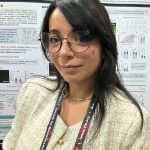A closer look at our newest research center at Yale University
The American Parkinson Disease Association (APDA) is proud to support nine Centers for Advanced Research which, along with a variety of funded grants and fellowships, are the backbone of our research program. At these Centers, some of the most compelling PD research is underway – research that keeps us optimistic and gives the Parkinson’s disease (PD) community hope for the future.
Each one of our Centers conducts an exceptional array of research activities, and we will highlight each one through the A Closer Look blog. Today we will spotlight our newest Center at Yale University School of Medicine.

The Yale APDA Center for Advanced Research — led by Dr. Clemens Scherzer, a renowned neurologist and scientist and esteemed member of APDA’s Scientific Advisory Board — envisions a new era of Parkinson’s precision medicine. Their goal is not just to treat symptoms but to predict, prevent, and precisely target the disease process itself. The Center brings together more than 25 experts in the field to create a new model of treatment: one that identifies the specific driver of disease in each patient and tailors treatment accordingly.
Of note, two junior investigators at Yale’s Center for Advanced Research were awarded individual APDA grants this year:

Zechuan Lin, PhD is an APDA Research Grant recipient

Maria Acosta-Olivero, PhD is an APDA Post-doctoral Fellowship recipient
Research at the Yale APDA Center for Advanced Research is Already Making an Impact
This ambitious strategy is already bearing fruit. Over the past year, Yale’s Center has surged forward on multiple fronts: new drug discovery through artificial intelligence, powerful biomarker and genetic studies, and a thriving clinical program that touches thousands of lives.
The Yale APDA Center for Advanced Research brings together basic, translational, and clinical investigators under one mission: to make precision medicine for PD a reality. The newly built Adams Center in New Haven, CT houses state-of-the-art laboratories, computational platforms, and clinical research hubs. Just blocks away, the Yale Comprehensive Movement Disorders Clinic provides multidisciplinary care, ensuring research discoveries quickly translate into patient benefit.
Dr. Veronica Santini, Clinical Division Chief, leads a team of 15 neurologists and neurosurgeons who manage everything from tremor and dystonia to rare, atypical parkinsonian syndromes. Last year alone, the clinic completed 7,000 patient visits, offering many specialized services such as deep brain stimulation (DBS), focused ultrasound, botulinum toxin therapy, and dedicated Lewy body dementia and atypical parkinsonism clinics.
This integrated research-and-care model means Yale is shaping not only the future of PD science, but also the everyday experience of patients and families.
Major Research Advances at the Center
Yale’s progress in research has led to successes that informed 63 PD-related papers and 37 active grants fueling dozens of projects. Highlights include:
- Machine learning-powered drug repurposing: Yale scientists collaborated with researchers at the University of Bergen in Norway on “emulated clinical trials”. By analyzing health records from more than 14,000 patients with PD in Norway, the international team identified 23 existing drugs associated with reduced mortality over an eight-year period. Among them, the antidepressant mianserin stood out, showing a 26% reduction in death risk compared to standard treatments. Mechanistic work at Yale in stem cells and animal models revealed that mianserin restores lost noradrenaline signaling in the brain and reactivates mitochondrial “clean energy” pathways which is an entirely new protective mechanism.
- Adaptive bioenergetics (energy protection in neurons): Work by Drs. Monika Sharma and Clemens Scherzer revealed that noradrenaline is critical for mitochondrial resilience. In models of PD, noradrenaline and selective β2-adrenergic receptor agonists restored mitochondrial potential, blocked neuron loss, and reduced alpha-synuclein buildup. These results suggest a powerful, druggable resilience system that could be activated early in PD.
- New insights into genetics and cell biology: In a landmark paper in Nature Cell Biology, Drs. Ferguson and De Camilli at Yale showed that the gene VPS13C, linked to familial PD, helps stabilize leaky lysosomes—a kind of cellular recycling center gone awry in PD. Loss of VPS13C function, they discovered, may allow toxic leakage that contributes to degeneration.
Clinical Trials and Biomarkers
Yale is deeply invested in clinical research, with 19 interventional trials and 16 biomarker studies currently underway. These span a wide spectrum of investigations including:
- Immunotherapy for REM sleep behavior disorder (a known premotor symptom of PD).
- Ketamine trials for depression in PD (a frequent non-motor symptom of PD).
- Gene therapy approaches for patients with advanced disease.
- PET imaging of dopamine transporters and synaptic proteins to improve diagnostic accuracy.
A cornerstone of these efforts is the Yale-Harvard Biomarkers Study (YHBS)—a longitudinal biobank of more than 4,300 participants and tens of thousands of biosamples, which relocated to Yale in 2023. With up to 20 years of patient follow-up, YHBS is one of the largest and most deeply phenotyped PD cohorts worldwide, now enhanced with cutting-edge imaging and AI-driven analysis. This resource is fueling discoveries in genetics, biomarkers, and drug testing.
Education and Outreach
Beyond research and care, Yale is investing heavily in education. Its fellowship program trains the next generation of movement disorder specialists, with graduates moving into academic leadership roles nationwide. Faculty such as Dr. Sara Schaefer are national leaders in medical education, designing curricula that are now used around the world.
The Center also prioritizes community engagement. Recent events included:
- The Dean’s Workshop on Parkinson Precision Medicine (~350 attendees).
- The Inaugural Yale APDA Patient Symposium (~200 attendees).
- Participation in the APDA Connecticut Optimism Walk and national educational conferences.
- Launch of bilingual community programs such as Dance for PD and Music Therapy for PD.
These initiatives reflect Yale’s philosophy that progress in PD is not only about lab discoveries, but also about empowering patients and families today.
The Goal of the Partnership Between APDA and Yale
Yale’s APDA Center for Advanced Research is proving that precision medicine is not a distant dream, but an emerging reality. By integrating genomics, imaging, AI, patient care, and clinical trials, the Center is building a model of PD care that is individualized, proactive, and deeply patient-centered.
Every discovery brings us closer to a future where PD can be predicted, prevented, and precisely treated given individual circumstances are all different.
Tips & Takeaways
- APDA funds nine Centers for Advanced Research, the newest of which is at Yale University School of Medicine.
- Drug repurposing shows promise: Yale’s AI-driven virtual trials identified 23 existing medications that may reduce mortality in PD.
- Mitochondria matter: Boosting energy resilience in neurons could be a game-changing therapeutic strategy.
- Biomarkers are key: Large-scale biobanks and advanced imaging are laying the foundation for earlier and more accurate diagnosis.
- Genetics matter: Understanding risk genes is revealing how PD starts and how to stop it.
- Care is holistic: Yale combines cutting-edge research with expert, compassionate care.
- You can learn more about APDA’s Centers for Advanced Research and the other research grants we fund on our website.
This blog was written by Clark Jones, PhD, and was reviewed, edited, and approved by Dr. Rebecca Gilbert.
